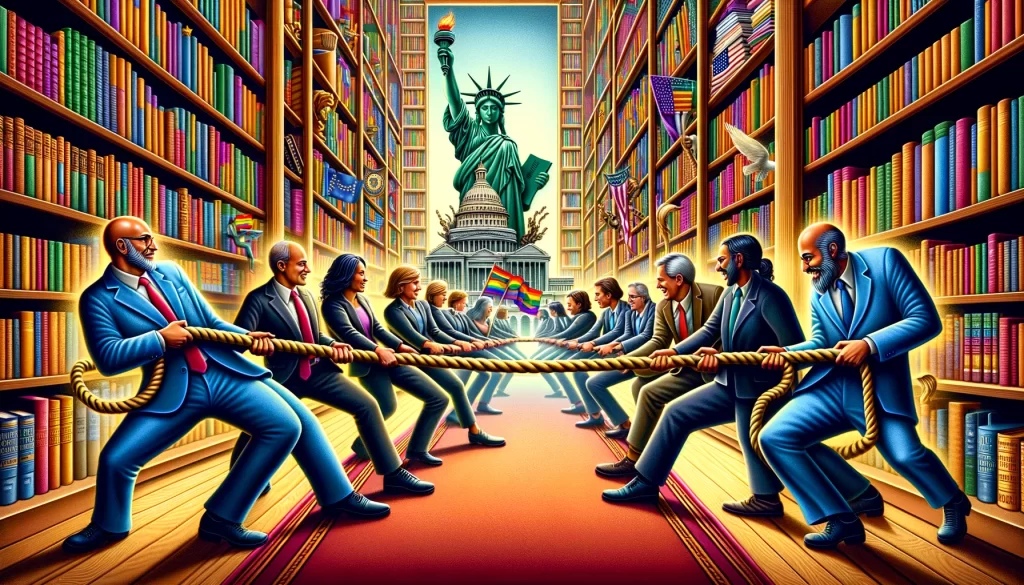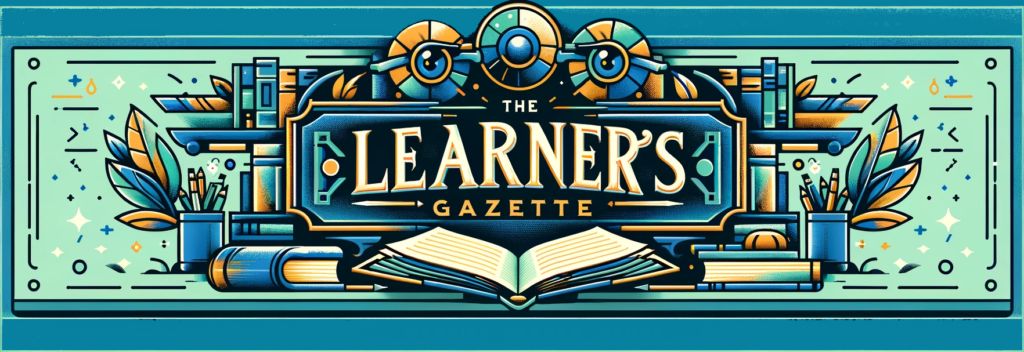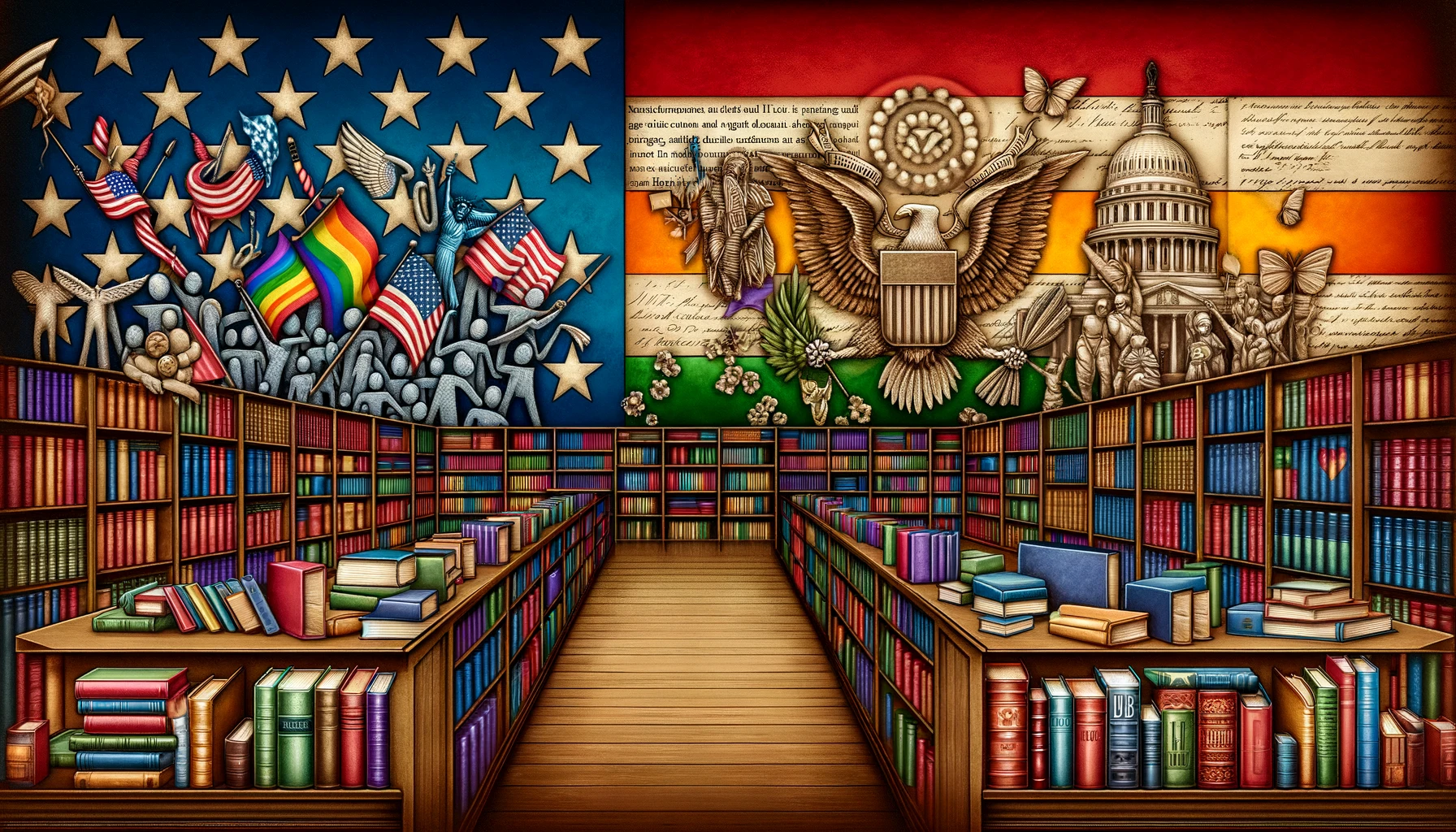In recent times, a debate has sparked around the content found in the children’s sections of public libraries, leading to a broader conflict involving the American Library Association (ALA). This association, a key professional group for libraries across the United States, is facing criticism for being perceived as too politically progressive. As a result, some states and local libraries are choosing to distance themselves from the ALA.
Georgia has become a focal point of this issue, with a bill passing the state Senate that aims to sever all school and public libraries’ ties with the ALA. This move, sponsored by Republican state Sen. Larry Walker, was motivated by his concern over a $20,000 grant from the ALA intended to diversify library collections with books addressing LGBTQ and BIPOC themes. Walker and like-minded individuals argue that the ALA’s influence promotes what they see as inappropriate ideologies, thus pushing a form of “political indoctrination.”
This sentiment isn’t isolated to Georgia. States such as Montana, Missouri, Texas, and South Carolina have also made steps to disengage from the ALA. The controversy gained additional momentum after a social media post by ALA’s president, Emily Drabinski, in which she described herself as “a Marxist lesbian” aiming to use collective power for global improvement. Critics argue that such statements and past writings, like Drabinski’s article “Queering The Catalog,” indicate a politicization of library spaces.
However, the ALA refutes claims of bias and insists that its wide range of leadership over the years demonstrates a commitment to diversity of thought. The organization attributes recent declines in membership to economic factors rather than political disagreements. Deborah Caldwell-Stone, director of the ALA’s Office for Intellectual Freedom, views the push to cut ties with the ALA as a form of government censorship and questions whether such actions are appropriate for a professional organization dedicated to librarianship.

The implications of disconnecting from the ALA concern many within the library community. The association provides essential support, including grants, professional development, and a network of peers. It also accredits educational programs for future librarians. Critics of the bill, such as Georgia state Sen. Nabilah Islam Parkes, argue that the legislation represents a political attack that could significantly harm libraries’ ability to serve their communities.
The timing of the bill is also seen as problematic by some, as libraries play a crucial role in promoting information literacy, especially in an era rife with misinformation. Professionals in the field, like David Lankes, a professor of librarianship, express concern that restrictions on libraries’ connections to professional organizations like the ALA could hinder their ability to effectively guide their communities.
The debate has real-world consequences, as illustrated by the experience of Terri Lesley, a former library director in Wyoming’s Campbell County, which cut ties with the ALA. Lesley, who was fired after opposing the move, highlights the disadvantages faced by library staff without access to ALA resources.
While some local libraries and activists, such as those associated with the group MassResistance, push for similar disconnections elsewhere, not all officials agree with cutting ties with the ALA. Wyoming Governor Mark Gordon, for instance, has resisted calls to sever the state’s relationship with the ALA, suggesting that such actions are more about spectacle than substance.
This article is based on the following article:

Background Information
Understanding these concepts will help the reader grasp the nuances of the debate surrounding the ALA, library collections, and the broader issues of censorship, representation, and the role of libraries in society.
1. American Library Association (ALA):
The ALA is a nonprofit organization based in the United States. Founded in 1876, it’s the oldest and largest library association in the world. Its mission is to provide leadership for the development, promotion, and improvement of library and information services and the profession of librarianship. The ALA advocates for freedom of information, the right to read, and other intellectual freedom issues.
2. Diversity in Library Collections:
Diversity in library collections means including books and resources that represent a wide range of cultural, social, and political viewpoints, as well as the lives and experiences of different groups of people, including LGBTQ (Lesbian, Gay, Bisexual, Transgender, and Queer) and BIPOC (Black, Indigenous, and People of Color) communities. This approach supports inclusivity and ensures that all library users can see themselves reflected in the materials available to them.
3. Political Indoctrination:
The term “political indoctrination” refers to efforts to teach someone to accept a particular set of beliefs, often without considering different viewpoints. Critics of certain library materials argue that including books with diverse or progressive themes is a form of indoctrination, especially if it involves topics like LGBTQ rights or racial issues. Supporters argue that including diverse books is about representation and education, not indoctrination.
4. Censorship and Government Intervention:
Censorship in this context refers to the suppression of speech, public communication, or other information. When government officials or bodies attempt to restrict access to certain books or ideas in libraries, it’s seen as a form of censorship. The debate over what materials should be available in libraries often centers on the balance between protecting young readers and upholding the freedom of information.
5. Information Literacy:
Information literacy is the ability to find, evaluate, and use information effectively. It’s a critical skill in the digital age, where misinformation can be widespread. Libraries and librarians play a key role in teaching information literacy, helping people discern reliable information from unreliable sources.
6. Accreditation:
Accreditation is a process of validation in which colleges, universities, and other educational institutions and programs are evaluated. The ALA accredits library and information studies programs, ensuring they meet certain standards of quality. Accreditation affects the quality of education for future librarians and the profession’s standards.
Please subscribe to Insight Fortnight, our biweekly newsletter!
